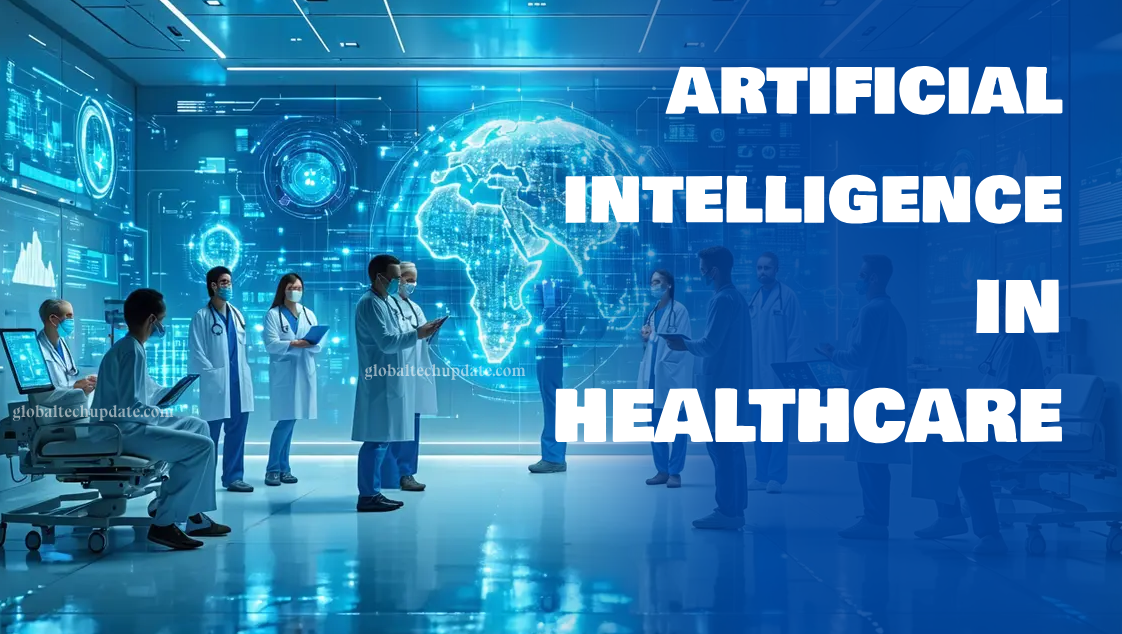AI in Healthcare: How AI is Revolutionizing Medical Diagnosis and Treatment
Introduction
Artificial Intelligence (AI) is no longer a concept confined to science fiction; it is actively shaping various industries, with healthcare being one of the most impacted sectors. The integration of AI in healthcare is bringing about revolutionary changes, improving the accuracy of diagnoses, optimizing treatments, and personalizing patient care. In this article, we will explore how AI is transforming the healthcare industry and how it is being used to advance medical diagnosis and treatment.
AI in Healthcare: A Game Changer
AI’s role in healthcare is multifaceted, ranging from predictive analytics to personalized treatment options. It has the potential to streamline operations, reduce human error, and improve overall patient outcomes. Healthcare providers are increasingly leveraging AI-powered tools to enhance clinical workflows and decision-making. Below are some of the key areas where AI is revolutionizing the healthcare industry.
1. AI in Medical Diagnosis
AI in healthcare is empowering medical professionals with advanced diagnostic tools that are more accurate and efficient than traditional methods. AI algorithms can analyze medical images (e.g., X-rays, CT scans, MRIs) faster than humans, often detecting abnormalities that might be overlooked. AI’s ability to analyze vast amounts of data, including genetic information, medical history, and lab results, enables more precise diagnoses.
Benefits of AI in Medical Diagnosis:
- Faster and more accurate detection of diseases.
- Reduced risk of human error.
- Enhanced early detection, particularly in diseases like cancer, heart conditions, and neurological disorders.
- AI-powered diagnostic tools are capable of learning and improving over time, leading to more accurate results.
2. Personalized Treatment Plans
AI’s role in personalized medicine has opened new doors for customized treatments tailored to individual patients. Machine learning algorithms analyze a patient’s unique genetic makeup, lifestyle, and environmental factors to recommend the most effective treatment options. By leveraging this data, healthcare providers can create personalized treatment plans that have a higher likelihood of success.
How AI Personalizes Treatment:
- Predicts how patients will respond to specific treatments based on their genetic profile.
- Identifies the most suitable medications, minimizing adverse drug reactions.
- Improves the overall success rate of treatment regimens by tailoring them to individual needs.
3. AI for Drug Discovery and Development
The drug discovery process is time-consuming and costly, but AI is transforming this aspect of healthcare. AI algorithms can analyze large datasets, identify potential drug candidates, and predict how they will interact with the human body. By using AI, researchers can expedite the discovery of new drugs and reduce the time it takes to bring them to market.
AI’s Impact on Drug Discovery:
- Speeds up the identification of potential drug compounds.
- Optimizes clinical trials by predicting which patients are most likely to benefit from new treatments.
- Reduces costs and improves the overall efficiency of drug development.
4. AI in Robotics and Surgery
AI-powered robotics is revolutionizing surgery by offering greater precision and control during procedures. Robotic systems powered by AI are capable of assisting surgeons in performing complex surgeries with minimal invasiveness, reducing recovery times, and improving patient outcomes.
Benefits of AI in Robotics and Surgery:
- Enhanced precision and control during surgeries.
- Minimally invasive procedures that reduce recovery time.
- AI-enabled robots can learn from past surgeries, continuously improving their performance.
5. AI in Predictive Analytics and Risk Management
Predictive analytics powered by AI is helping healthcare providers anticipate patient outcomes and manage risks more effectively. AI algorithms analyze historical patient data and identify patterns that indicate potential health risks. By detecting these risks early, healthcare providers can intervene sooner, preventing complications and improving overall patient outcomes.
How AI Helps in Predictive Analytics:
- Identifies patients at risk of chronic diseases, such as diabetes or cardiovascular issues.
- Predicts disease outbreaks and provides real-time surveillance data.
- Allows healthcare providers to make informed decisions about patient care based on predictive insights.
The Future of AI in Healthcare
The potential of AI in healthcare is vast, and as technology continues to evolve, its impact will only grow. AI is expected to become even more integral to healthcare systems, enabling healthcare providers to offer more efficient, accurate, and personalized care to patients.
Challenges and Considerations:
While the integration of AI in healthcare offers immense benefits, there are challenges that need to be addressed:
- Data Privacy Concerns: AI relies on large amounts of sensitive patient data, raising concerns about data security and privacy.
- Bias in Algorithms: If AI systems are not trained on diverse datasets, they may develop biases that affect diagnostic accuracy and treatment outcomes.
- Regulatory and Ethical Issues: The rapid advancement of AI in healthcare raises questions about regulation and the ethical use of AI in decision-making processes.
Conclusion & Call to Action
AI in healthcare is transforming how medical diagnoses are made, how treatments are tailored to individual needs, and how drugs are developed and tested. The future of AI in healthcare holds immense promise, with the potential to create more efficient, personalized, and accurate healthcare systems. However, challenges like data privacy and algorithmic bias need to be carefully managed.
If you’re a healthcare professional or AI developer, now is the time to explore the possibilities of AI in your field. Embrace the technology that is poised to shape the future of healthcare and improve patient outcomes across the globe.




